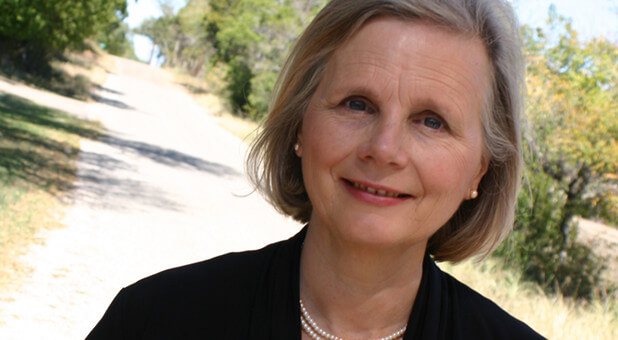Jessie was born in South Wales, U.K., in 1861. The daughter of a mining engineer/Methodist minister, she married William Penn-Lewis at the age of 18. Eighteen months later, she realized that if Christ were to return, she wasn’t ready, and so she began to seek the Lord. Soon she met Jesus and began a deep walk with Him.
When she turned 19, she was found to have tuberculosis and given six months to live. God miraculously healed her, and she had remarkable resilience and strength to accomplish all that God called her to through the rest of her life.
At the age of 31, she was filled with the Holy Spirit. She had great insight into the Word of God and taught before huge audiences at conventions around the world including the Keswick Convention, a famous annual conference on the deeper life.
Jessie Penn-Lewis was involved in the Welsh revival of 1904-05, a revival that was cut short by the illness (both physical and mental) of Evan Roberts, the main leader. Evan Roberts stayed with Jessie and her husband for a couple years following this event.
Jessie’s ministry took her to other countries, including Russia, India, Canada and the U.S. She had the privilege of speaking at the Moody Bible Institute’s Worker’s Conference, where R.A. Torrey introduced her as “one of the most gifted speakers the world has ever known.” She had the privilege of being friends with some other spiritual giants of her day, including F.B. Meyer, Andrew Murray, Oswald Chambers and D.L. Moody. She was a prolific author, and her book War on the Saints, written in collaboration with Evan Roberts, is a classic on spiritual warfare. She founded the magazine “The Overcomer.”
Jessie Penn-Lewis had an influence on her generation, including such people as Frank Buchman (who founded the Oxford Group) and Norman Grubb (who, as president of WEC International, took from a small group of 35 missionaries to thousands of workers around the world.)
But gender was also an issue:
“I saw that God had given me a specific commission … but the one objection was the fact that I was a woman. There was no quarrel with the message … no denial of the divine seal … no getting away from the evidence of the results. But none of these … did away with the fact that I was a woman, therefore I could not but see that, whilst God opened doors … in some quarters, others were fast closed to the message I bore, purely, and only, because I was a woman.”
The great cry of this heart was, “Why did God not commit this vital message to one who could … deliver it without restriction?” Often, in the early years, as she labored to deliver the message, Jessie also gazed out upon the audience, “watching with eager eyes to see whether there was not some hidden and chosen instrument to whom God could transmit this burden, who would rise up … and let me step aside.”
The following expresses her deep concerns: “For years I cried to God that He would raise up a man” to fill “the commission He had given to me. … Many tears did I shed over this … until at last … I saw and could say with the Lord, ‘I beheld and there was no man.’ … God had committed this message to me, and at whatever cost, I must go forward.”
On one occasion, “a gentlemen with strong prejudice against the ministry of woman” was in attendance at an Overcomer conference. … In conversation afterwards, he confessed: ‘I would not have believed it possible, had I not seen it, that God would use a woman like that!’” Her response? “God never does use a woman like that … or a man either! God only uses the NEW CREATION.”
“All that I have, all that I am, all that I may be is Thine, wholly, absolutely, and unreservedly.” —Jessie Penn-Lewis
Adapted from Felicity Dale’s blog, Kingdom Women. Felicity Dale is an author and an advocate for women in the church. She trains people to start simple, organic house churches around the world.













